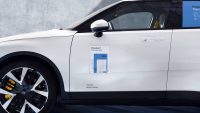Government turns to private clinics to help tackle NHS waiting lists
The government has turned to private sector capacity in a bid to cut NHS waiting lists.
Thirteen new community diagnostic centres (CDCs) will be opened across England to carry out an additional 742,000 scans, checks and tests per year.
Eight of the new facilities will be operated by the private sector – although services will be free to patients – and five will be run by the NHS. Health secretary Steve Barclay said: ‘We must use every available resource to deliver life-saving checks to ease pressure on the NHS.’
Not yet time to ‘declare it’s all over’ on interest rates, warns bank governor
The Bank of England has raised interest rates for the 14th time in a row as it signalled that borrowing costs could stay high for a prolonged period of time to keep a lid on inflation.
Bank governor Andrew Bailey said it is not ‘time to declare it’s all over’ on rate rises. It comes after policymakers opted to increase interest rates to 5.25 per cent from five per cent, heaping more pressure on mortgage holders.
The Monetary Policy Committee (MPC) said some of the risks from more persistent inflation, notably wage growth, had ‘begun to crystallise’, prompting it to push borrowing costs higher. Economists had thought the latest hike could be one of the last, with some predicting a pause in rates after one more rise.
Government asks Covid inquiry to return irrelevant material
The government has asked the UK Covid-19 inquiry to return material that is not relevant to its line of investigation, it is understood.
The PA news agency has learned the Cabinet Office asked inquiry chairwoman Baroness Heather Hallett via a Section 21(4) of the Inquiries Act 2005 to return everything that is not relevant to her work.
The inquiry is believed to now be in possession of unredacted WhatsApp messages between former prime minister Boris Johnson and 40 colleagues, including former No 10 adviser Dominic Cummings, cabinet secretary Simon Case and former chancellor and current prime minister Rishi Sunak.
Food prices likely to remain high, Bank of England warns
Food prices are likely to remain high for the rest of the year, the Bank of England has said.
The Bank said there was ‘quite wide agreement’ that food price inflation had now peaked and was expected to be significantly lower by the end of the year at ‘perhaps around 10 per cent or slightly lower’.
It said that cost inflation experienced by food producers had fallen, but still remained much higher than usual, and could take longer for some producers to see lower pressures, particularly where there were annual contracts with suppliers or group-buying arrangements.
High street retailer Wilko set for administration with 12,000 jobs at risk
Wilko has said it plans to appoint administrators, putting about 12,000 jobs at the high street retailer at risk.
The boss of the homeware and hardware chain said it is expected to enter insolvency after failing to secure a takeover to help the business with ‘mounting cash pressures’. Wilko, which has about 400 shops, filed a notice of intention to appoint administrators at the High Court on Thursday.
Earlier this year the company hired advisers from PwC in a bid to find to a buyer in order to secure fresh funding to keep the firm trading.
Thursday Car Dealer headlines you might have missed
- Ferrari raises profit expectations after personalisation cash results in ‘stunning’ Q2
- Freight ship fire could end up costing more than £260m as experts warn more EV transporters could go up in flames
- Nissan boss says Formula E involvement ‘can only be good news’ for brand’s UK dealer network
- Vertu Motors extends partnership with Robert Forrester’s beloved Burnley FC ahead of Premier League return
- Holden Group looks on sunny side of energy use as it invests £500k in solar panels
- Industry charity Ben reinforces support message to help people this summer
- Conor Horne joins Lotus as commercial boss for UK and Ireland
So-called Islamic State says leader killed by al Qaida-linked militants in Syria
The terrorist group calling itself Islamic State has announced the death of its little-known leader, Abu al-Hussein al-Husseini al-Qurayshi, who has been heading the extremist organisation since November.
The group did not say when al-Qurayshi was killed but added that he died in fighting with an al Qaida-linked group. IS spokesman Abu Huthaifa al-Ansari said that Abu Hafs al-Hashemi al-Qurayshi was named as the group’s new leader.
Al-Qurayshi was the fourth IS leader to be killed since the group was founded by Iraqi militant Abu Bakr al-Baghdadi and declared a caliphate in large parts of Syria and Iraq in June 2014 before its defeat years later.
Trump pleads not guilty to federal charges he tried to overturn 2020 election
Donald Trump has pleaded not guilty to trying to overturn the results of his 2020 presidential election loss.
The former US president was answering for the first time to federal charges that accuse him of orchestrating a brazen and ultimately failed attempt to block the peaceful transfer of presidential power.
In a criminal case seen as the most historically consequential of the three that he faces, Trump stands accused of trying to subvert the will of voters and obstruct the certification of Democrat Joe Biden’s victory before January 6, 2021, when a mob of supporters stormed the US Capitol in a violent clash with law enforcement.
Apple’s earnings top analysts’ forecasts but year-over-year sales drop again
Apple made a slightly higher profit last quarter even though sales dipped during the period – a time during which the iPhone maker became the first publicly held company in the US to be valued at 3 trillion dollars.
The results released on Thursday covered April to June, the third consecutive quarter that Apple has posted a year-over-year decline in revenue. That is its longest stretch of declining sales in nearly seven years.
Revenue totalled 81.8bn dollars (£64.4bn), down one per cent from last year. Profit edged up by less than one per cent from a year ago to 19.9bn (£15.6bn), or 1.26 dollars per share.
Petrol prices rise for second consecutive month as oil costs increase
The average price of a litre of petrol rose for a second consecutive month in July, though diesel remained the same.
New data released by RAC Fuel Watch shows that a litre of unleaded in the UK now costs 145p, which is up by a penny since the start of the month and two pence since the start of June. However, the wholesale price of petrol rose by six pence a litre from July 19 – following hikes in the cost of oil – which means that further rises are likely to be on the way.
Diesel prices remained stable, in contrast, at 146p per litre, though this ended eight months of consecutive price drops. These prices mean that filling an average 55-litre family car is now close to £80 for either fuel – £80.21 for diesel and £79.75 for petrol.
Weather
A day of patchy cloud and sunny spells, reports BBC Weather. The north and east will see scattered thundery showers. Winds will ease today but temperatures will still be cool, topping 20 degrees in the south-east.
Rain and wind will blow into the west tonight. The rain will be particularly heavy in Northern Ireland.



































